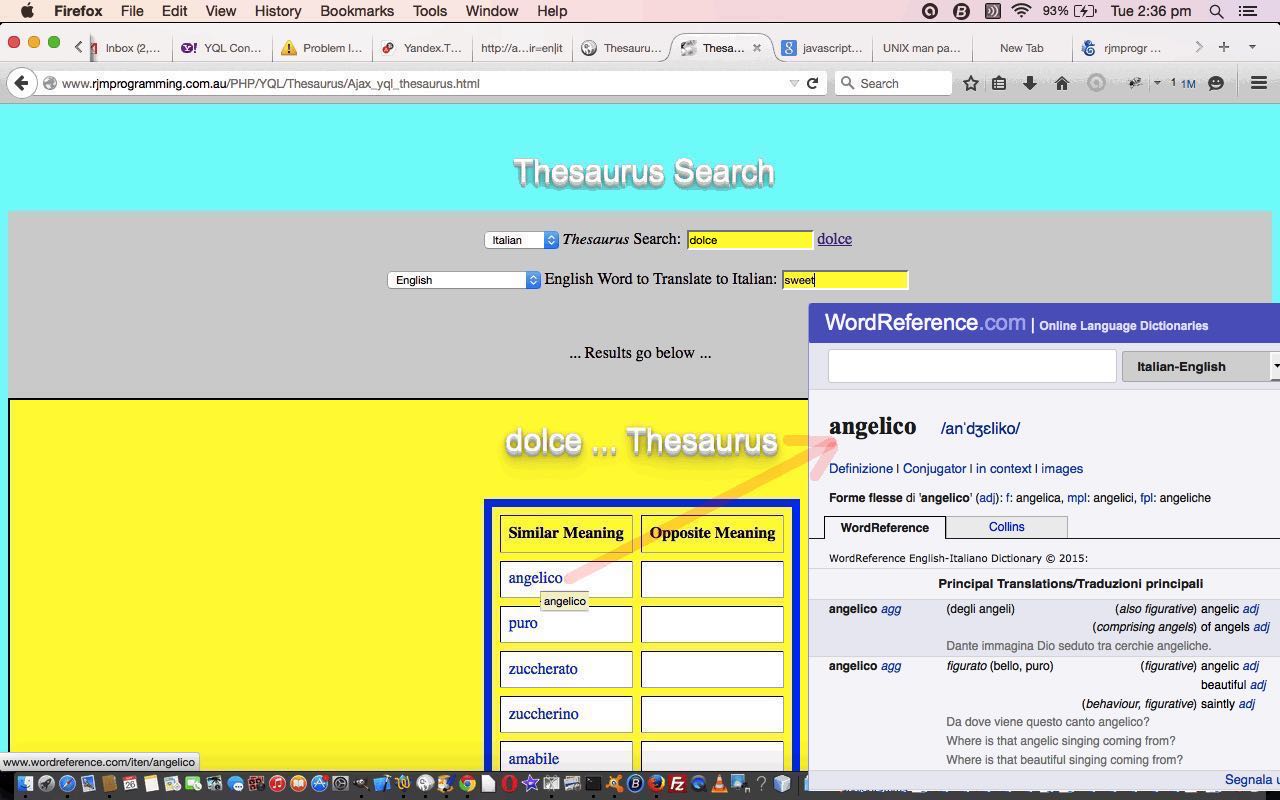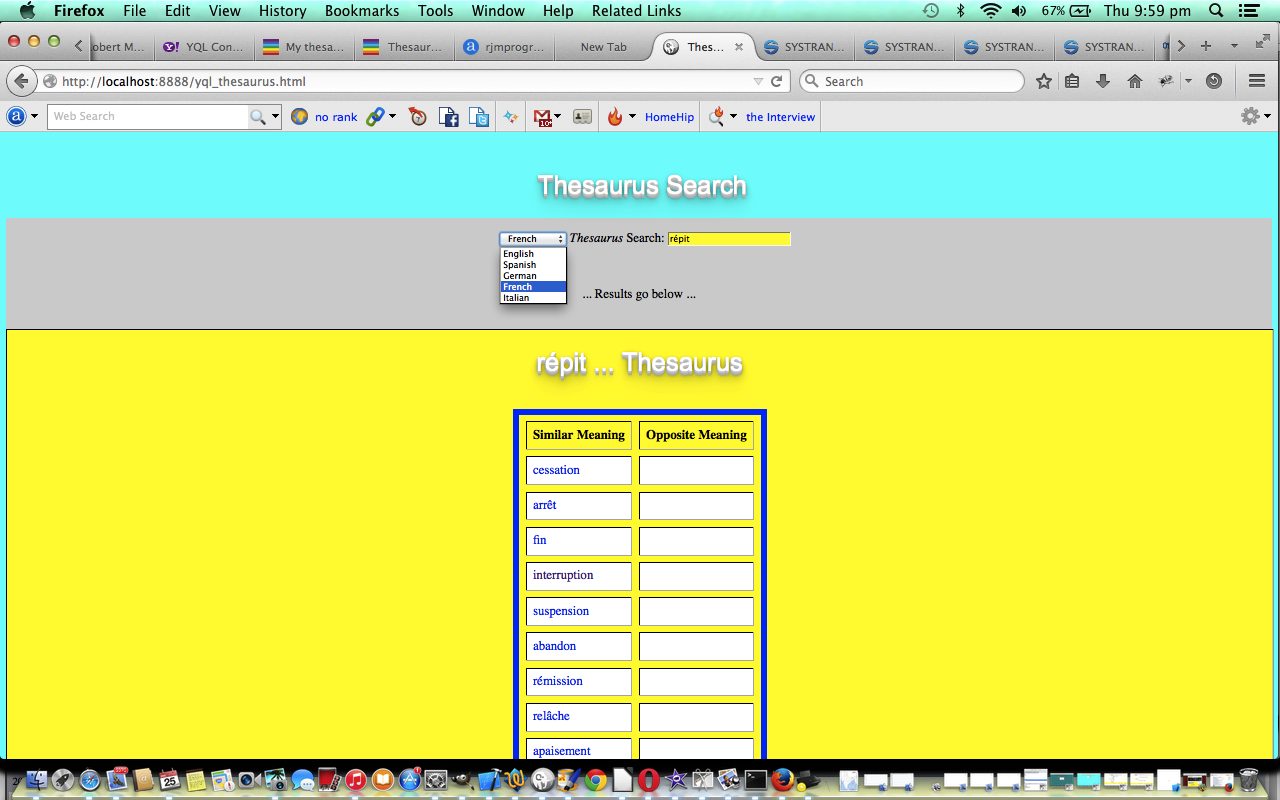Language teachers will sometimes resort to an immersion method, in the classroom, where the only language allowed to be spoken is the language being learnt, often the second language for the student who is being taught. ESL teachers face this decision sometimes. We read an interesting article on the subject here, and decided to use our Pros and Cons web application to create our own view of the importance of the excellent points talked about in that article, as you can see with our report …

Then there are degrees of “immersion”, as well, with questions such as whether you allow the use of paper (or electronic) dictionaries and translators. Think there is a lot of agreement that the best language learning happens with some degree of context and use of realia to help the student envisage the situations in which that vocabulary might be encountered. However, with written work or independent study, and even in the classroom a (web application) tool to help the learner with a difficult word could help, and so we’ve extended the functionality of the previous Yahoo YQL Web Service JSON Thesaurus Tutorial as shown below, by offering the chance for the native language be used to translate the word, and offer a list of thesaurus word lists of the language they are learning out of the list of languages below …
Read more about this below as well, but this tutorial uses a YQL web service into the data emanating from its links to the altervista thesaurus web service database with Yahoo YQL website … thanks. For the altervista thesaurus database usage it is best to request a key for your web service queries. You fill in a word (or two, or three) of interest to search for like-minded words.
We found useful, and thank, for this extra functionality, the tremendous MyMemory API resource.
The downloadable HTML source code for today’s tutorial you could call Ajax_yql_thesaurus.html (changed as per Ajax_yql_thesaurus.html) calls on the PHP yql_thesaurus.php (changed as per yql_thesaurus.php).
Try a live run yourself and hope this sparks an idea or two for you.
Previous relevant Yahoo YQL Web Service JSON Thesaurus Tutorial is shown below.
Here is a tutorial that might be re-introducing you to the Yahoo Web Services called YQL, building on previous ones here at this blog. The name is the way it is because it simplified the API aspects of its functionality for the developer to concentrate on SQL, and I’m really supportive of this concept. You don’t have to output in JSON, as other data forms like XML are acceptable. Let’s see what Wikipedia says about YQL below.
Yahoo! Query Language (YQL) Gumtree Advertisementusing Android Phone Photos Tutorialis an SQL-like query language created by Yahoo! as part of their Developer Network. YQL is designed to retrieve and manipulate data from APIs through a single Web interface, thus allowing mashups that enable developers to create their own applications.[1]
Initially launched in October 2008 with access to Yahoo APIs,[2] February 2009 saw the addition of open data tables from third parties such as Google Reader, the Guardian, and The New York Times.[3] Some of these APIs still require an API key to access them. On April 29th of 2009, Yahoo introduced the capability to execute the tables of data built through YQL using JavaScript run on the company’s servers for free.[3]
So this tutorial uses a YQL web service into the data emanating from its links to the altervista thesaurus web service database with Yahoo YQL website … thanks. For the altervista thesaurus database usage it is best to request a key for your web service queries. You fill in a word (or two, or three) of interest to search for like-minded words.
And what is a thesaurus? Read what Wikipedia says here but, basically, it can be thought of as a repository of a language’s list of words of a similar meaning to the word of your interest. It is a great tool for people learning a language foreign to them, especially regarding their vocabulary.
The two big PHP functions of use (as distinct from an Ajax approach, requiring no PHP … read on) for this are:
- file_get_contents
- json_decode … when there is a data structure of any complexity, this function is highly recommended, but for today’s tutorial we do not use it, and take the opportunity to show you a solution using Ajax that requires no PHP … link to some downloadable Ajax inspired HTML programming source code which you may want to rename to Ajax_yql_thesaurus.html which changes from the HTML supervising PHP approach as per Ajax_yql_thesaurus.html (and then there is an Ajax live run)
Good links for information regarding this tutorial (thanks) are:
- YQL Two Minute Tutorial from Yahoo
- Yahoo! Query Language from Wikipedia, as per quote above
- YQL Home Page from Yahoo
- YQL thesaurus help from Yahoo
- YQL JSON Parsing Help from YQL forum
Another tool you should have in your armoury for jobs like this is the online JSON validator here. A generic JSON approach to issues could be:
- Type the URL you were given into a web browser address bar and have a look at it
- Type the URL you were given into //jsonlint.com/ and have it validated
- Understand in your own mind what would be different about 1. to make it suitable
- Incorporate findings of 3. into massaging of data between file_get_contents and json_decode
Here is a link to some downloadable HTML programming source code which you may want to rename to yql_thesaurus.html which calls some downloadable PHP programming source code which you may want to rename to yql_thesaurus.php (and then there is a PHP live run).
We thank the following free online dictionaries …
Stay tuned for an interesting blog posting tomorrow which combines the new thesaurus functionality of today’s contribution, along with the functionality “smarts” of yesterday’s PHP/CSS Sentence Auxiliary Verb Game Tutorial.
Stop Press
As of 14th May 2015 a blog posting called HTML/Javascript Homonyms Game Tutorial inspired a “tweak” to the arrangement above such that a call of the web application above such as Sense of Humour will cause the display of a lookup during the “onload” event, as required.
If this was interesting you may be interested in this too.
If this was interesting you may be interested in this too.





I have been exploring for a bit for any high-quality articles or weblog posts in this kind of space . Exploring in Yahoo I at last stumbled upon this web site. Reading this information So i¡¦m glad to express that I have a very good uncanny feeling I found out just what I needed. I so much unquestionably will make certain to do not omit this web site and give it a look regularly.
You can definitely see your skills in the work you write. The sector hopes for more passionate writers like you who are not afraid to mention how they believe. All the time go after your heart.
Siema, fajny rozdział. Pewien czas nie słuchałem tak interesującego dzieła
I truly wanted to send a quick message to be able to say thanks to you for those fantastic suggestions you are writing on this website. My incredibly long internet lookup has at the end of the day been compensated with brilliant tips to exchange with my friends and family. I ‘d say that we readers actually are extremely blessed to exist in a wonderful website with very many special individuals with interesting hints. I feel extremely blessed to have discovered your entire webpage and look forward to tons of more excellent times reading here. Thanks a lot once again for all the details.
Have you ever considered about contributing on additional web-sites? could nicely some excellent content right here and I’m positive you can share a wonderful deal a lot more in the event you wrote some content material throughout other internet websites. You’ll discover a great deal of associated internet sites to look at. Only one thing to think about. I’m glad I know about it at least.
I feel that is among the so much significant information for me. And i am satisfied reading your article. But should commentary on few normal issues, The website style is ideal, the articles is in point of fact nice : D. Good task, cheers|
You made some clear points there. I did a search on the topic and found most guys will agree with your blog.
So content to have identified this post.. So content to possess discovered this post.. Get pleasure from the blog you presented.. of course, research is having to pay off.
What’s up, yes this article is truly nice and I have learned lot of things from it about blogging. thanks.|
Excellent post. I used to be checking constantly this weblog and I’m impressed! Extremely helpful information specifically the closing part I take care of such information a lot. I used to be seeking this certain info for a very lengthy time. Thanks and best of luck. |
I take care of such information a lot. I used to be seeking this certain info for a very lengthy time. Thanks and best of luck. |
very nice